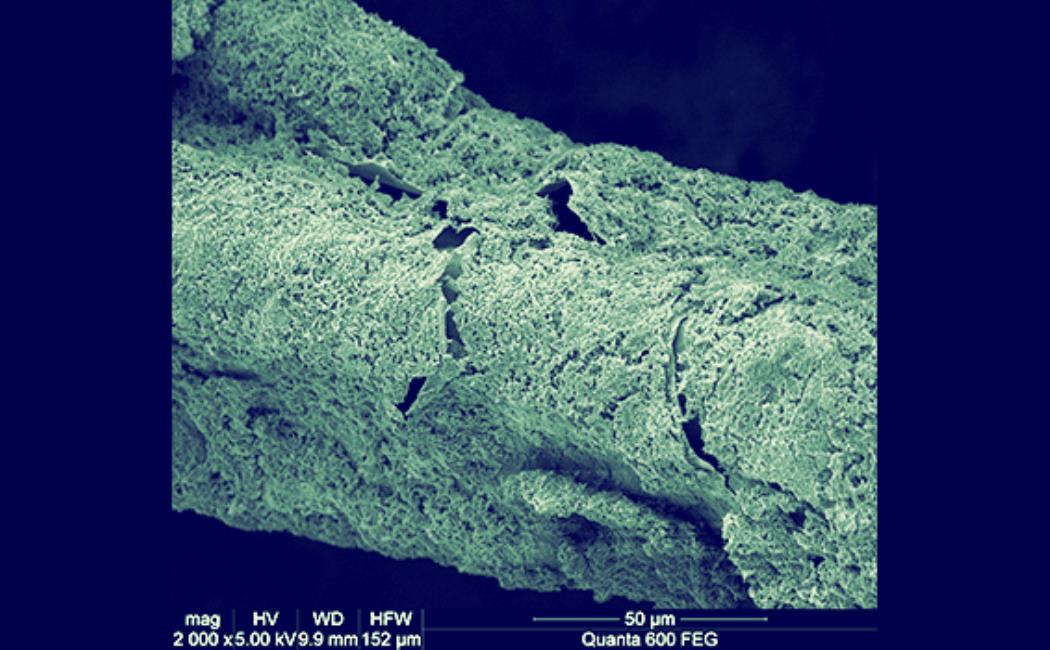
Lighting the path to recycling carbon dioxide
05 October, 2020
Semiconductive photocatalysts that efficiently absorb solar energy could help reduce the energy required to drive a bioelectrochemical process that converts CO2 emissions into valuable chemicals, KAUST researchers have shown.
Recycling CO2 could simultaneously reduce carbon emissions into the atmosphere while generating useful chemicals and fuels, explains Bin Bian, a Ph.D. student in Pascal Saikaly’s lab, who led the research. “Microbial electrosynthesis (MES), coupled with a renewable energy supply, could be one such technology,” Bian says.
Click here to read the full story
Image: SEM image shows the dense and uniform cathodic biofilm, which mainly comprises chemolithoautotrophs, and could serve as biocatalysts for efficient carbon dioxide conversion to acetate.
© 2020 KAUST